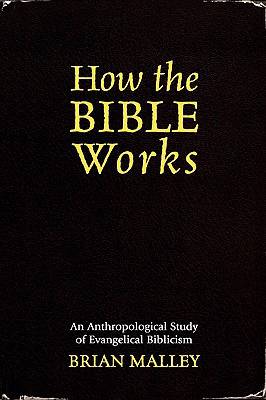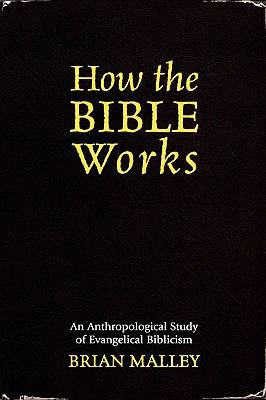
- Afhalen na 1 uur in een winkel met voorraad
- Gratis thuislevering in België vanaf € 30
- Ruim aanbod met 7 miljoen producten
- Afhalen na 1 uur in een winkel met voorraad
- Gratis thuislevering in België vanaf € 30
- Ruim aanbod met 7 miljoen producten
Zoeken
€ 83,45
+ 166 punten
Uitvoering
Omschrijving
What do evangelicals believe when they 'believe in the Bible'? Despite hundreds of English versions that differ in their texts, evangelicals continue to believe that there is a stable text-'the Bible'-which is the authoritative word of God and an essential guide to their everyday lives. To understand this phenomenon of evangelical Biblicism, anthropologist and biblical scholar Brian Malley looks not to the words of the Bible but to the Bible-believing communities. For as Malley demonstrates, it is less the meaning of the words of the Bible itself than how 'the Bible' provides a proper ground for beliefs that matters to evangelicals. Drawing on recent cognitive and social theory and extensive fieldwork in an evangelical church, Malley's book is an invaluable guide for seminarians, social scientists of religion, or for anyone who wants to understand just how the Bible works for American evangelicals.
Specificaties
Betrokkenen
- Auteur(s):
- Uitgeverij:
Inhoud
- Aantal bladzijden:
- 184
- Taal:
- Engels
- Reeks:
Eigenschappen
- Productcode (EAN):
- 9780759106659
- Verschijningsdatum:
- 30/04/2004
- Uitvoering:
- Paperback
- Formaat:
- Trade paperback (VS)
- Afmetingen:
- 152 mm x 229 mm
- Gewicht:
- 249 g

Alleen bij Standaard Boekhandel
+ 166 punten op je klantenkaart van Standaard Boekhandel
Beoordelingen
We publiceren alleen reviews die voldoen aan de voorwaarden voor reviews. Bekijk onze voorwaarden voor reviews.











